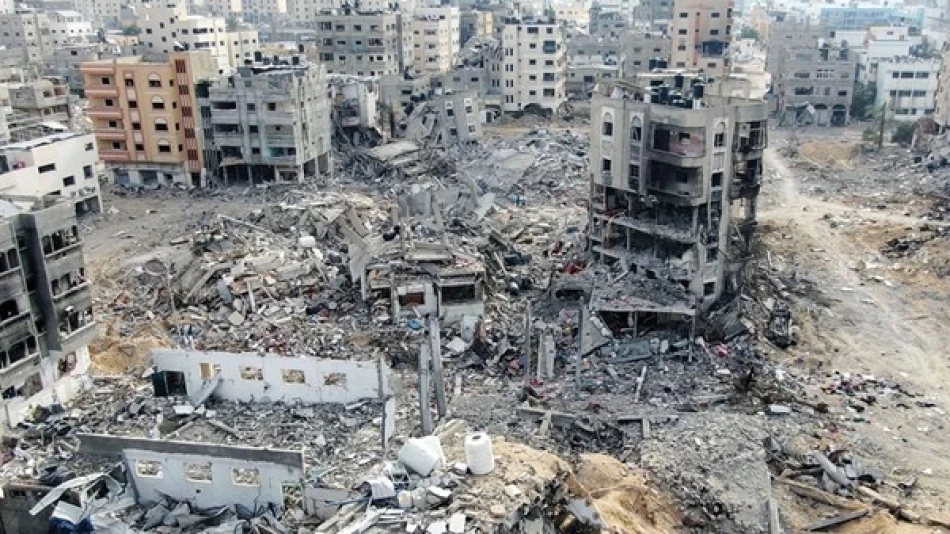
Gaza Ceasefire Proposal: Israel's Response Awaited by Mediators
Gaza Ceasefire Talks Hit Critical Juncture as Hamas Accepts New Proposal
A new Gaza ceasefire proposal has reached a pivotal moment, with Hamas accepting terms that Qatar describes as "nearly identical" to previous Israeli-approved frameworks. The 60-day temporary truce would involve releasing 10 living Israeli hostages and returning bodies of deceased captives, while opening immediate negotiations for a comprehensive deal to end the devastating war in the besieged Palestinian territory.
The Mechanics of the New Deal
The current proposal represents a carefully calibrated attempt to break months of deadlock. According to informed sources, the framework includes a two-month cessation of hostilities during which Hamas would release 10 Israeli hostages who are confirmed alive, alongside the return of bodies of those who have died in captivity.
What makes this proposal particularly significant is its built-in mechanism for broader negotiations. Rather than treating hostage releases as an isolated transaction, the deal explicitly calls for immediate talks on a comprehensive agreement covering post-war governance and reconstruction of Gaza.
Qatar's Diplomatic Gambit
Qatar's Foreign Ministry spokesman Majed Al-Ansari emphasized the proposal's similarity to previously accepted Israeli terms, stating: "We received the response from Hamas movement, and for us it is a very positive response that represents an almost identical picture to what was previously agreed upon by the Israeli side."
This framing is strategically important. By characterizing Hamas's acceptance as alignment with prior Israeli positions, Qatar is attempting to minimize room for rejection while maximizing pressure on Israel to reciprocate.
Netanyahu's Dilemma
Israeli Prime Minister Benjamin Netanyahu faces a complex political calculus. While he has not publicly commented on the latest proposal, his recent statements suggest continued resistance to gradual hostage releases. Last week, he emphasized that all hostages must return as part of ending the war, but crucially added "on our terms."
This position reflects domestic political pressures from families of hostages demanding their immediate return, while also satisfying coalition partners who oppose any deal that could be perceived as rewarding Hamas or limiting Israel's military objectives in Gaza.
Historical Context and Precedent
The current negotiations echo patterns from previous Israeli-Palestinian prisoner exchanges, most notably the 2011 Gilad Shalit deal where Israel released over 1,000 Palestinian prisoners for a single soldier. However, the scale and complexity of the current situation—involving over 100 hostages and a broader war—creates unprecedented challenges.
The 60-day timeframe also mirrors successful ceasefire models from other conflicts, providing sufficient time for confidence-building measures while maintaining urgency for permanent resolution talks.
Regional and International Implications
The timing of this proposal coincides with shifting regional dynamics and international pressure for de-escalation. Qatar's mediating role has become increasingly crucial as traditional diplomatic channels remain strained, positioning Doha as an indispensable broker in Middle Eastern crisis management.
For the broader region, a successful ceasefire could provide breathing room for diplomatic initiatives addressing underlying issues including Gaza's governance, economic reconstruction, and long-term security arrangements. Failure, conversely, risks further regional escalation and potential involvement of other actors.
The Economic Dimension
Beyond immediate humanitarian concerns, the proposal carries significant economic implications. A 60-day pause would allow for initial damage assessments in Gaza, potentially unlocking international reconstruction funding that has been on hold during active hostilities. Regional markets, particularly in tourism and energy sectors, would likely respond positively to genuine progress toward stability.
The deal's success or failure will also influence broader investor confidence in Middle Eastern stability, affecting everything from oil prices to regional development projects that have been postponed due to conflict uncertainty.
Most Viewed News

 Layla Al Mansoori
Layla Al Mansoori






